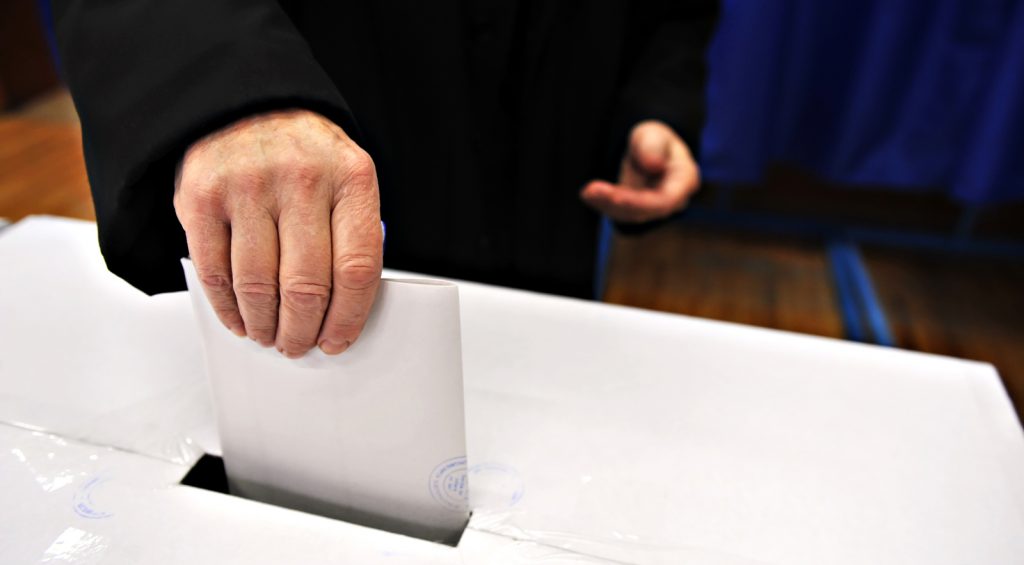
Published September 3, 2014
Conservatives often lament their inability to nominate one of their own for president. Almost unnoticed, the RNC made some changes to the party rules that could make it even harder in 2016. One change in particular could make it virtually impossible for a movement candidate to become the 2016 nominee.
That change is known as the “proportionality window.” It requires all state contests, whether caucuses or primaries, held between March 1 and March 14 to allocate the delegates available statewide proportionally. (The states can still allocate delegates available at the congressional-district level by a winner-take-all method.) Only four states (Iowa, New Hampshire, South Carolina, and Nevada) are permitted to hold their contests before March 1 without incurring draconian penalties, including reducing a state’s delegation to as few as nine. Thus, the combination of these two rules means that the nominee will very likely be whoever wins the contests held after March 14, since it will be impossible to run up a sizeable delegate lead in the early phase of the race when many candidates are competing.
This is a potential death sentence for the conservative candidate. Most of the highly conservative southern states traditionally hold their primaries inside of the March 1–14 window. If that occurs again in 2016, a conservative candidate will probably not gain many delegates over the establishment choice by winning the states in his base. Even if a southern state in the window allocates, as many non-southern states do, three delegates to each congressional district on a winner-take-all basis, the proportional allocation of the statewide delegates will place a conservative statewide winner at a severe disadvantage. He or she will then have to compete in less hospitable states that have the freedom to select all of their delegates by winner-take-all methods.
The 2016 preliminary lineup already foreshadows this danger. According to the website FrontloadingHQ.com, ten of the 15 southern or border states (including Texas, Virginia, and North Carolina) are currently scheduled to hold their contests before March 14. Three other caucus states where conservatives traditionally do well (Iowa, Minnesota, and Colorado) are also scheduled to hold their contests before the window closes. Conservative Utah is also in this group, as are the two midwestern states where Rick Santorum did best in 2012, Michigan and Ohio.
Under the RNC’s new rules, a conservative could run the table in these events and yet barely open up a delegate lead. The establishment choice could easily make up ground and then some in less conservative states such as Illinois, Pennsylvania, New Jersey, and New York.
Another RNC change inadvertently helps conservative candidates, slightly mitigating this issue. In 2012, most caucus states did not require their delegate selection to be bound by the straw-vote result. In state after state, Rick Santorum or Newt Gingrich would do well in the straw vote but fail to get many delegates because the candidate with the best infrastructure (Romney) or the most intense followers (Paul) would dominate the subsequent conventions where the delegates were actually picked. Thus, while Santorum won the North Dakota caucus, Romney was awarded 20 of the state’s 28 delegates to Santorum’s 6. In Minnesota, Santorum won 45 percent in the caucus straw poll, but Paul acolytes so dominated subsequent conventions that 33 of the state’s 40 delegates went for Paul.
The RNC rule changes prevent that sort of behavior by requiring that delegate allocation in all caucus states be bound to the straw-poll results. Thus, in 2016 a conservative candidate who wins a straw poll will be assured of getting the delegates he has earned: a plurality in proportional-allocation states, and a majority or better in winner-take-all states. Since conservatives of all stripes tend to do better in caucuses than in primaries, this change makes it more likely that a conservative candidate will garner the delegates needed to win.
But even with this change, a conservative is unlikely to be nominated unless the most conservative states get around the RNC’s window. These state parties or legislatures can change the dates of their primaries and caucuses between now and mid 2015. Southern states have banded together before to create a “southern primary.” If they were to do so again and schedule it for March 15, they could ensure that conservatives will have an early and an effective impact on the 2016 nomination.
If these states do this, they must also adopt the winner-take-all method favored by states outside the south. Most states outside the south award three delegates to the winner of each of a state’s congressional districts, and they give the remainder to the winner of the statewide popular vote. This method usually gives narrow winners an outsized delegate advantage. Mitt Romney, for example, won Ohio by only one point, but he received 13 more delegates than second-place Rick Santorum. In 2012, many conservative states in the south used a proportional method of delegate allocation. This seriously reduced their impact. Romney’s eight-point win in winner-take-all Wisconsin, for example, gave him a 24-delegate advantage over Santorum. Proportional-allocation rules in Mississippi, Oklahoma, Alabama, and Tennessee, however, meant that Santorum won all four but still won only the same 24-delegate lead on Romney as Romney got from Wisconsin. In effect, one midwestern establishment state was equal in impact to four conservative southern ones simply because of a difference in their delegate-allocation rules.
A conservative presidential candidate faces many barriers to victory. It would be a terrible shame if that person started the process with a tougher road because of establishment cleverness and conservative blindness.
— Henry Olsen is a senior fellow at the Ethics and Public Policy Center.







